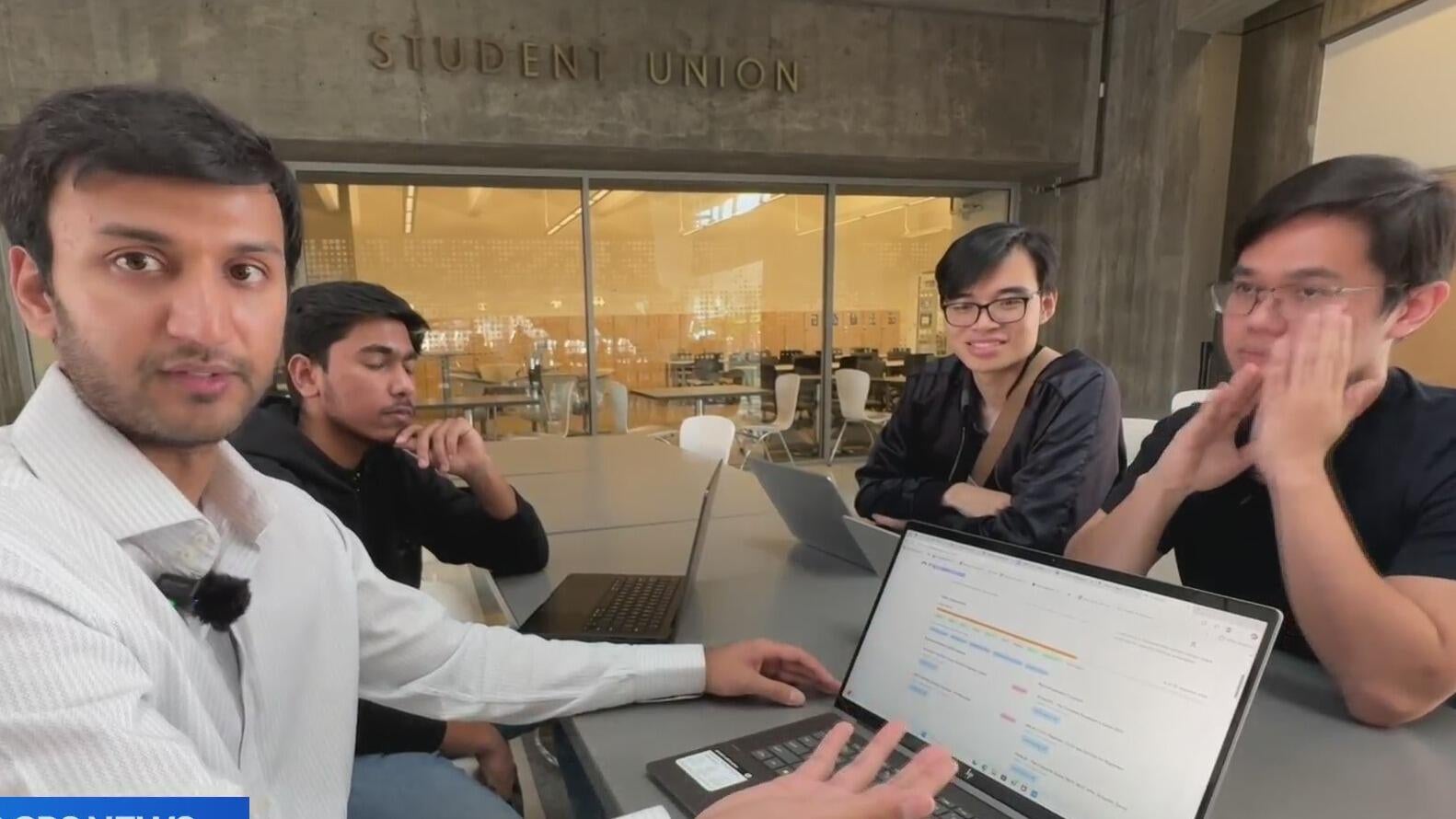SJSU students build AI-powered app to help laid-off federal workers find new careers

SAN JOSE — An assignment for a required course at San Jose State University led to the creation of a tool for laid-off federal employees.
FedBridge, an AI-powered platform, says it has helped "thousands of laid-off federal workers who've successfully restarted their careers with FedBridge."
The website, the platform, and everything that has to do with FedBridge comes from four SJSU students in the first year of their graduate program: Saim Sheikh, Khanh Chung, Dat Tri Tat, and Rusheek Ratna Reddy Gade.
Grouped together for a class project, their assignment was clear, but not exactly simple: create a digital platform or app that can significantly impact people.
"As engineers, we usually focus on the technology most of the time. But in this case, (our professor) wanted us to think about how you (can use) technology to make an impact in the real world," Khanh said.
When they were assigned in February, federal layoffs were dominating the headlines.
It started with the 'Fork in the Road' email, which offered a severance package for federal workers who chose to resign by Feb. 12.
Saim said that using LinkedIn and other social media platforms, they conducted informational interviews to research specific issues facing laid-off federal employees.
"(Federal workers) told me that what happens a lot is that people have one skill set that they keep practicing, and it's very old. The technologies used in (federal agencies) are significantly legacy, as compared to modern and private industries," Saim said. "So, there's a significant gap between the skills of a federal worker vs. a private worker."
FedBridge attempts to bridge that gap through its online application.
Users upload a resume, which is used to automatically create a profile. The profile is then used to pull tailored career suggestions and job openings from various sites, some of which may require specific certifications.
"We're actually recommending the certifications to take, and what classes you can take to gear you towards passing those exams for that certification," Saim said. "It's automatically supposed to find out who you are based on your profile and recommend you the jobs based on your equation from there. You don't have to click anything. You don't have to search anything. That was essentially the idea."
FedBridge also provides an AI-powered interview platform to prepare prospective employees.
The SJSU team said creating and developing the application alone took at least 200 hours, not including the actual learning the students had to do before applying it to FedBridge.
"When I learn, I don't care about the time," said Dat, who his teammates claim is the hardest and most sleepless teammate.
"We didn't know everything at the start," Rusheek said, "We learned a lot, and it was thanks to Professor Ranjan."
Professor Rakesh Ranjan spends most of his time out of the classroom, but it was improbable for the Spartan grad to stay away from campus. The full-time IBM manager is also from a family lineage including 15 teachers.
"It runs in my blood. Teaching is more about having an industry-academia collaboration, and sharing the industry knowledge with the students, my fellow Spartans. And giving back to the community." Ranjan said. "I tell my students 'demo or die.' It's my motto. You have an idea, you create something, you demo it, you validate your proof of concept, and that's how you learn."
Throughout the existence of his group project, Ranjan has heard a lot of pitches and ideas. Some were bad, others were good, but FedBridge was unlike anything else.
"One of the (teams) built an Airbnb expense management system. It's very useful, but (FedBridge) was a really unique project because they really understood the pain point of all these federal workers that were being laid off," he said. "Imagine the people working in USAID for 10-25 years. They have such a unique skill set, for example, in the food supply chain. For these professionals who've been affected, they didn't know (the layoffs) were coming. They didn't have a resume. They didn't have a LinkedIn profile. (It's) for (federal workers) to understand that they have a very enriching and valuable experience that can potentially be translated to a supply chain management job in Walmart or Amazon."








 English (US) ·
English (US) ·